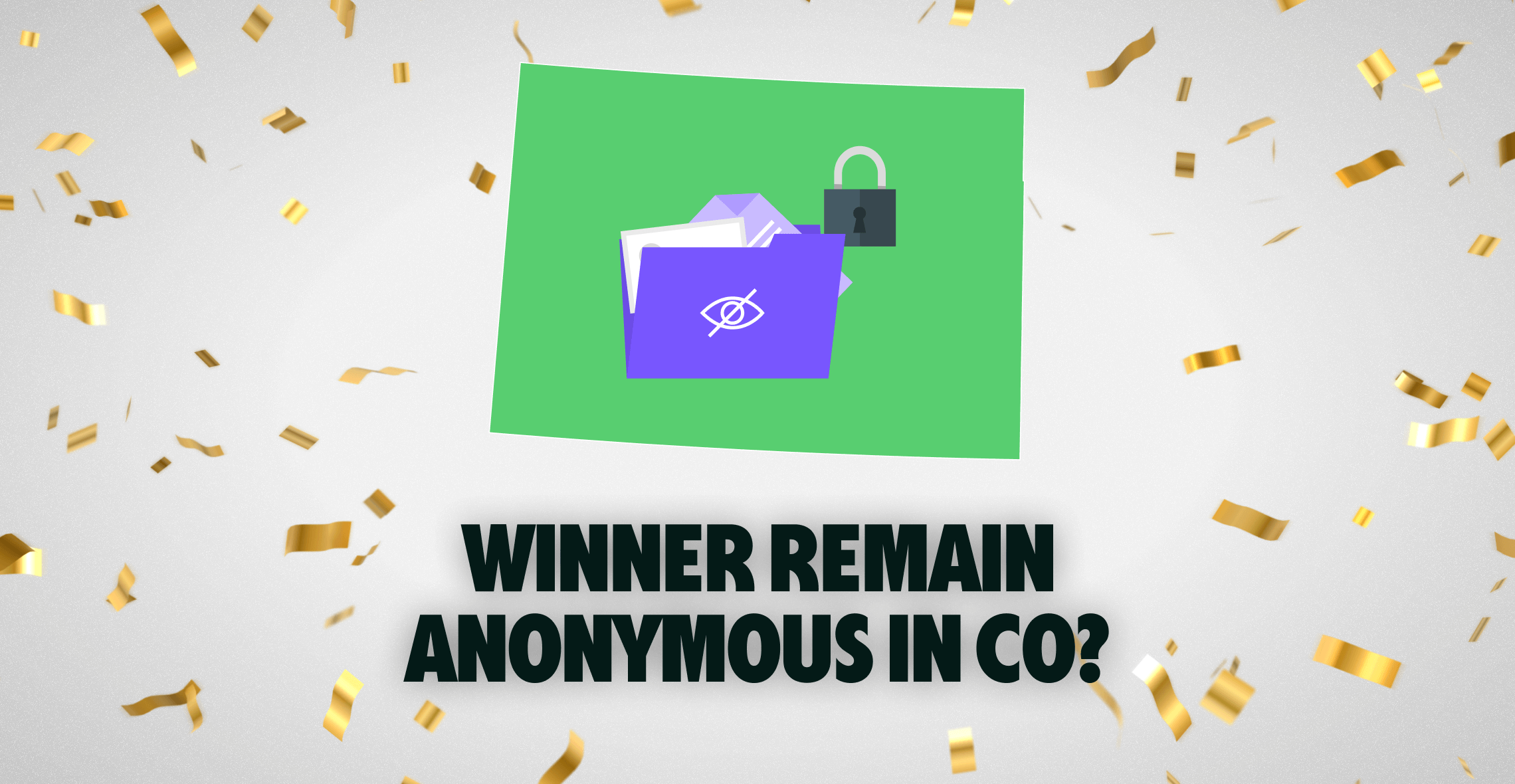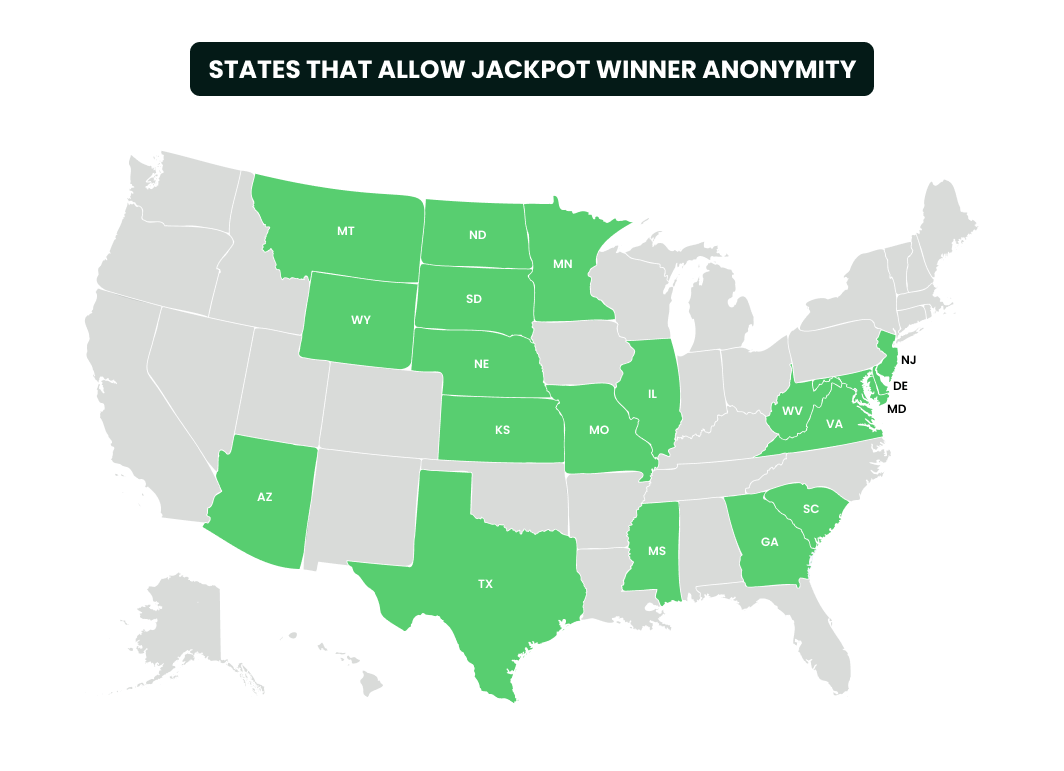Can You Remain Anonymous When Winning the Colorado Lottery?
Written by Jackpot Staff
June 18, 2025

Winning the lottery is a dream come true for many, but the spotlight that comes with it? Not so much. If you've ever wondered whether you can keep your identity under wraps after hitting that Colorado lottery, you're not alone. Privacy concerns are completely valid when suddenly coming into life-changing wealth.
Colorado's Lottery Winner Disclosure Rules
Based on current regulations, Colorado generally requires disclosure of certain winner information, though policies may be subject to change. Winners should verify current requirements with official sources.
What Information Goes Public
When you win a significant prize in Colorado, the lottery is required by law to disclose:
- Your first name
- First initial of your last name
- Your hometown
- The prize amount you won
- Which game you played
This information doesn't just sit in a filing cabinet somewhere - it gets published on the Colorado Lottery website and is available to media outlets who request it. The Colorado Open Records Act (CORA) mandates this transparency to maintain public trust in the lottery system.
Can You Get Around These Rules?
While full anonymity isn't possible in Colorado, you do have options for protecting some of your privacy, like using legal entities to claim prizes.
That being said, some winners may explore various legal strategies to enhance privacy protection. These approaches may involve different types of legal entities. Winners should consult with qualified legal professionals to understand available options and their specific circumstances.
How Colorado Compares to Other States
The rules around lottery winner anonymity vary dramatically across the country:
States with Full Anonymity

In these states, winners can claim massive jackpots without ever revealing their identities to the public.
States with No Anonymity Options
On the opposite end of the spectrum, states like California, New York, and Pennsylvania require full disclosure of winner identities with virtually no exceptions. These states prioritize transparency above winner privacy concerns.
Colorado's Middle Ground
Colorado falls into a middle category alongside states like Florida and Michigan, which offer limited privacy protections. This approach attempts to balance public interest in transparency with winners' legitimate privacy and safety concerns.
The Possible Risks of Going Public
The desire for anonymity isn't just about avoiding awkward conversations at family reunions. There are some serious risks associated with public lottery wins:
Safety Concerns
Public identification of lottery winners can lead to significant safety concerns, including harassment, scams, and fraud. The vulnerability of publicly known winners to exploitation and the potential for dangerous situations highlight the need to consider privacy implications when lottery prizes are awarded.
Financial Exploitation
Financial planning is an important consideration for lottery winners. Winners should consult with qualified financial advisors to develop appropriate strategies for their specific situations.
Lottery winners can be highly susceptible to financial issues within five years of winning, with nearly 70% facing distress. Public visibility makes them vulnerable to scams, constant requests for money, and unwanted business offers.
Practical Steps for Colorado Winners
If you hit it big in Colorado, here are some things to consider:
Before You Claim
- Sign your ticket immediately (but consider signing it in a way that allows transfer to a trust)
- Make copies of the front and back of your ticket
- Secure the ticket in a safe deposit box or other secure location
- Assemble your team of legal and financial advisors before claiming
- Consider establishing a trust or LLC to claim the prize
During the Claim Process
- Limit who knows about your win to the absolute essentials
- Request minimal publicity from the lottery commission
- Consider claiming near the end of the 180-day window to give yourself time to prepare
- Have a plan for handling media inquiries
After Collecting Your Prize
- Consider changing your phone number or creating a dedicated line for filtering calls
- Review your social media privacy settings or consider a temporary deactivation
- Have prepared responses for inevitable questions about your windfall
- Consider temporarily relocating if media interest is intense
Looking to the Future
The trend across the country is moving toward greater privacy protections for lottery winners. Since 2019, states like Arizona and Texas have expanded anonymity options, reflecting growing concerns about winner safety in the digital age.
That being said, privacy protection approaches vary by state and may evolve over time. Winners should stay informed about current regulations in their jurisdiction.
What's Your Best Play?
If you're playing the Colorado Lottery and dreaming of that big win, your best approach is to:
- Plan ahead - Know the rules before you win
- Assemble experts - Have legal and financial advisors ready
- Act strategically - Use the available privacy tools effectively
- Stay grounded - Maintain perspective about both the opportunities and challenges of a windfall
The Colorado Lottery offers life-changing prizes that can open incredible doors. With proper planning, you can enjoy your winnings while minimizing unwanted attention.
Want to try your luck without the hassle of visiting a retailer? Jackpot.com makes it easy to play your favorite Colorado lottery games online, giving you one less thing to worry about on your path to potential winnings. Good luck!
Just remember that while you can't remain completely anonymous in Colorado, you can take smart steps to protect your privacy if fortune smiles on you.
This information is provided for general educational purposes only and does not constitute legal, financial, or tax advice. Laws and regulations vary by jurisdiction and change over time. Lottery winners should consult with qualified legal, financial, and tax professionals regarding their specific circumstances. This information should not be relied upon as a substitute for professional advice.
